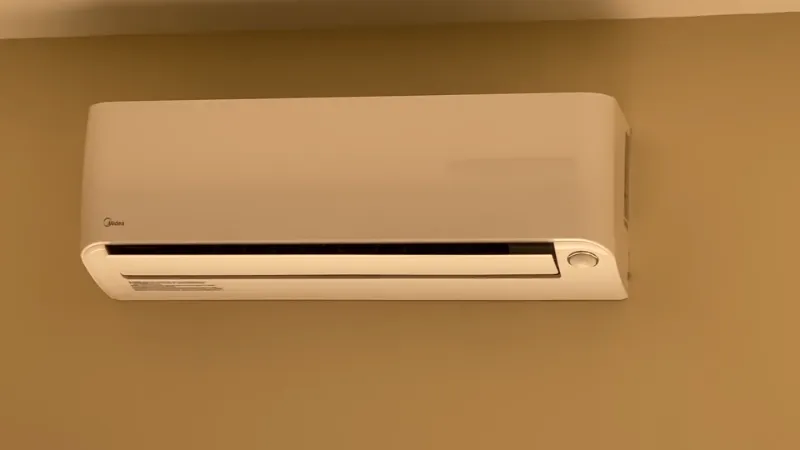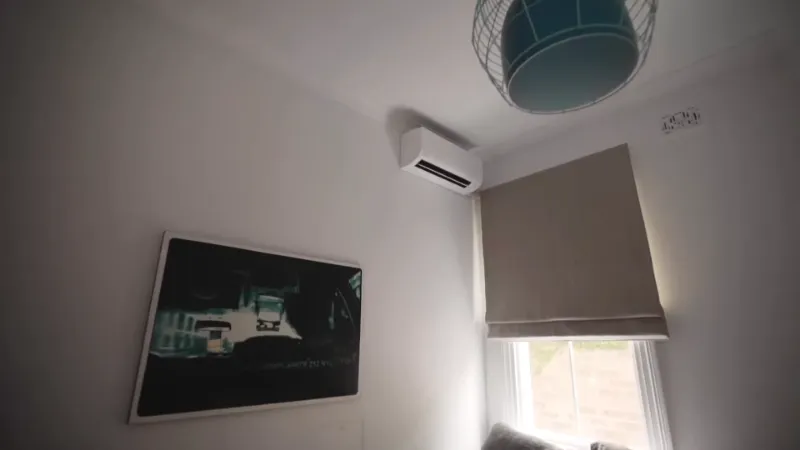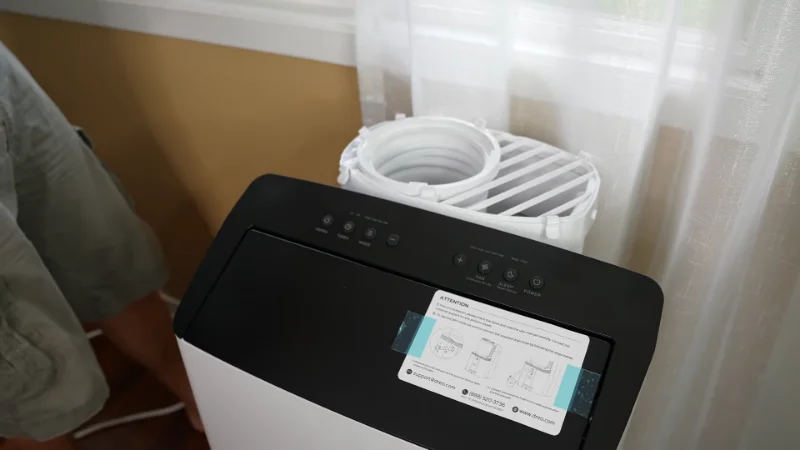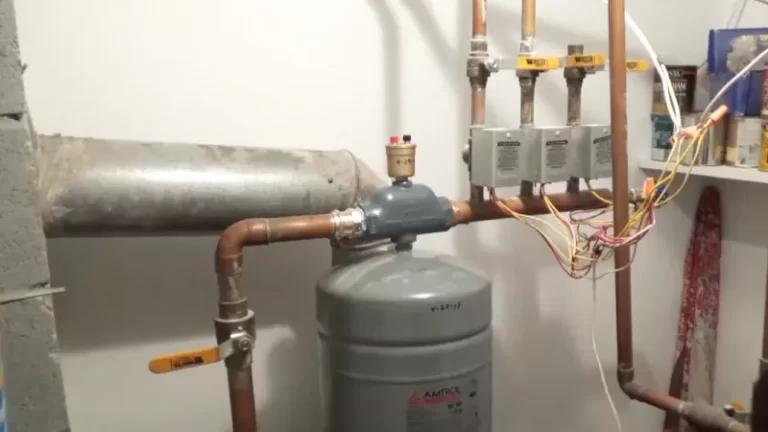Do Air Conditioners Work Harder In High Humidity?

Humidity can have a major effect on how air conditioners function and operate. Since air conditioners are designed to reduce humidity levels and keep a space cool, higher levels of humidity can cause them to work harder to achieve the desired temperature and humidity levels.
In this article, we will discuss how air conditioners work harder in high humidity and how it affects their efficiency and performance. We will also look at the best ways to reduce the effects of high humidity on air conditioners and how to improve their efficiency.
You'll Learn About
Do Air Conditioners Work Harder in High Humidity?
Humidity is the amount of water vapor in the air. It is measured in terms of relative humidity (RH), which is the percentage of water vapor compared to the maximum amount of water vapor that can be held in the air at a particular temperature.
Affect Air Conditioners
High humidity can cause air conditioners to work harder to cool the air. This is because when the air is humid, the air conditioner has to remove both heat and moisture from the air in order to cool it down.
This means that the air conditioner has to work harder to cool the air, which can lead to higher energy bills.
Increase Cooling Costs
Yes, high humidity can increase cooling costs. When the air is more humid, the air conditioner has to work harder to cool the air. This means that the air conditioner will use more energy, leading to higher energy bills.
High humidity can also make the air feel warmer, which can lead to the air conditioner running longer than necessary.
Reduce the Impact of High Humidity on Air Conditioners
To reduce the impact of high humidity on air conditioners, there are a few things that can be done. First, it’s important to make sure that the air conditioner is properly sized for the space that it is cooling.
If the air conditioner is too small, it won’t be able to effectively cool the space. Additionally, it’s important to make sure that the air conditioner is properly maintained. This includes changing the filters regularly, as dirty filters can reduce the efficiency of the air conditioner.
Reduce the Amount of Moisture
It’s important to reduce the amount of moisture in the air. This can be done by using a dehumidifier or by opening windows and doors to allow for air circulation.
High humidity can cause air conditioners to work harder and lead to higher energy bills. To reduce the impact of high humidity on air conditioners, it’s important to make sure that the air conditioner is properly sized and maintained.
Additionally, it’s important to reduce the amount of moisture in the air by using a dehumidifier or by opening windows and doors.
Which Mode is Best for Ac in Humidity?
Humidity is the amount of water vapor in the air. It is often expressed as a percentage of the maximum amount of water vapor the air can hold at a given temperature. High humidity can make it uncomfortable to be outside and can also cause damage to your home and possessions.

How Does Humidity Affect an Air Conditioner
Humidity affects an air conditioner in several ways. Air conditioners work by exchanging heat from inside a space to outside, but when the air is saturated with water vapor, it can reduce the efficiency of the system.
High humidity also increases the risk of mold and mildew growth in the system and its ducts.
What is the Ideal Humidity Level for an Air Conditioner
The ideal humidity level for an air conditioner is between 40% and 50%. This range is optimal for both comfort and efficiency. If the humidity level is too low, it can cause dry skin and other respiratory issues.
If the humidity level is too high, it can cause mold and mildew growth in the system and its ducts.
What is Dry Mode
Dry mode is a setting on an air conditioner that helps to reduce humidity levels in a room. This mode works by reducing the amount of cool air that is circulated through the room, which reduces the amount of moisture in the air.
Dry mode is typically only used when the humidity levels are above 50%. Can it make you cough?
Which Mode is Best for Ac in Humidity
The best mode for an air conditioner in high humidity is dry mode. This mode helps to reduce humidity levels in the room while still providing cooling. It is important to note, however, that dry mode should only be used when the humidity levels are above 50%.
If the humidity levels are below 40%, then it is best to use the cool mode.
Why is My Ac Not Cooling High Humidity?
High humidity is when the air holds more moisture than it can evaporate, causing a muggy feeling in the air. It occurs when the air temperature is higher than the dew point, and it can be caused by warm temperatures, weather systems, or other environmental factors.
High humidity makes it difficult to cool the home and can make the air conditioner’s job more difficult.

How Does High Humidity Affect My Air Conditioner
High humidity creates an unwanted load on your air conditioner. The air conditioner has to work harder to bring the temperature down, and it can’t do it as quickly as it would in drier air. This can cause the air conditioner to run for longer periods of time and use more energy.
Additionally, high humidity can cause condensation to form on the air conditioner’s evaporator coil, which can reduce its efficiency.
Signs of High Humidity
If your home is feeling muggy and sticky, that could be a sign of high humidity. You may also notice condensation on windows and walls, and you might see water droplets forming on your air conditioner’s evaporator coil.
If you have a dehumidifier, it may be running more often than usual.
How to Reduce High Humidity
The best way to reduce high humidity is to make sure your air conditioner is running properly. Make sure the air filter is clean and that there is adequate airflow around the air conditioner. If your air conditioner is too small for your home, it won’t be able to cool the air effectively.
You may want to consider investing in a larger unit or adding a dehumidifier to your system.
Preventative Measures
There are some steps you can take to help prevent high humidity from accumulating in your home. Make sure you’re using your exhaust fans in the kitchen and bathroom when they’re needed. Keep doors and windows closed when the air conditioner is running.
And make sure you’re regularly changing your air filter to keep the air conditioner running efficiently. Taking these preventative measures can help your air conditioner run more efficiently and reduce the amount of humidity in your home.
Can High Humidity Cause Ac to Freeze Up?
High humidity can cause an air conditioner to freeze up. This happens when the evaporator coil becomes too cold and the moisture in the air condenses on the coil. Excess moisture combined with low temperatures can create a layer of ice or frost on the coil.
A frozen coil prevents air from flowing through the system, resulting in no cooling. Airflow restrictions caused by a dirty air filter or other issues can add to this problem. Insufficient maintenance and lack of refrigerant can also contribute.
To prevent the AC from freezing up, make sure you have proper maintenance and change filters regularly. Make sure the unit is properly sized for the space and keep vents unblocked. Monitor humidity levels in your home and adjust the thermostat if necessary.
If the unit still freezes up, contact a professional HVAC technician.
Does Humidity Make AC Feel Colder?
Humidity can make the air feel colder, even though the temperature may not have changed. This is because humid air has a higher heat capacity, meaning it can absorb more heat from the body than dry air.
Humidity makes the air feel colder because it reduces the amount of heat that can be conducted away from the body. When the air is humid, the sweat on your skin evaporates more slowly, making you feel colder.
The relative humidity of the air also affects how cold it feels. If the air is already saturated with moisture, then the humidity can’t increase any more, making the air feel warmer. On the other hand, if the air is dry, then the humidity can increase, making the air feel colder.
The wind chill factor can also make the air feel colder, as this increases the rate of conduction of heat away from the body. Humidity can make a room with air conditioning feel colder, as the air conditioner will cause the air to become drier.
Overall, humidity can make air feel colder, even if the temperature hasn’t changed.
Which Mode in AC Removes Humidity?
Dry mode is a setting on an air conditioner (AC) which reduces the humidity in the air. This mode helps to keep the air feeling comfortable and not too humid. The AC works by removing moisture from the air, which is why it’s often referred to as a dehumidifier.
Dry mode is especially useful in warm, humid climates, when indoor air feels stuffy and uncomfortable.
How Does Dry Mode Work
When an AC is set to dry mode, it will run at a temperature lower or higher than the user has set. This helps to maximize the dehumidification capacity of the AC, as the difference between indoor and outdoor temperatures is what allows the AC to effectively remove moisture from the air.
As the air passes through the AC’s evaporator coil, moisture condenses on the coil and is removed from the air as it is released outside.
When Should I Use Dry Mode
Dry mode is most useful in areas of high humidity, where indoor air can feel stuffy and uncomfortable. It can also help to reduce mold and mildew growth in humid climates. If you’re looking for a way to reduce humidity in your home or office, dry mode may be the solution.
Advantages of Using Dry Mode
Using dry mode can help reduce humidity levels in your home or office, which can make indoor air more comfortable and reduce the risk of mold and mildew growth. It also helps to reduce energy costs, as the AC doesn’t have to run as long or as hard to cool the air.
Disadvantages of Using Dry Mode
Using dry mode can cause your AC to run longer and harder than when set to a lower temperature, which can increase energy costs. In addition, the AC may not be able to cool the air as effectively in dry mode, so it may not be the best choice in hot climates.
It’s also important to note that dry mode should not be used as a replacement for proper ventilation. Disposing will be easy in some cases when they expire.
To Recap
High humidity can have a significant effect on how air conditioners function and perform. By understanding how humidity affects air conditioners, homeowners can better prepare for the summer season and take the necessary steps to reduce the effects of high humidity on their ACs.
By making small changes in their AC setup and maintenance routine, homeowners can keep their air conditioners working efficiently and effectively, even in high humidity environments.


